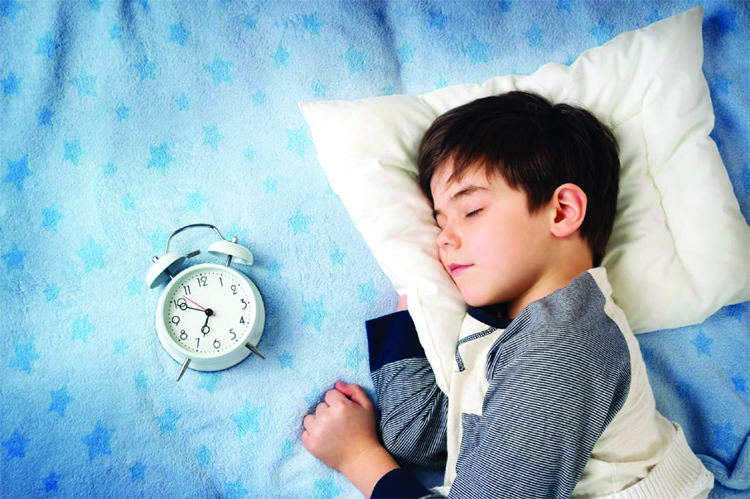
Weekend Plus Desk :
s your child facing trouble in sleeping? If so, parents take note. Regular and sufficient sleep from early childhood may be important for gaining healthy body weight in adolescence, suggests a new study. The study revealed that those who had no bedtime routine at age nine had shorter self-reported sleep duration and higher body mass index (BMI) at age 15, when compared to those children with age-appropriate bedtimes.
“We think sleep affects physical and mental health, and the ability to learn,” said Orfeu Buxton, Professor from the University of Pennsylvania in the US. “Parenting practices in childhood affect physical health and BMI in the teenage years. Developing a proper routine in childhood is crucial for the future health of the child,” Buxton added.
Previous studies have shown that poor sleep can affect academic performance, as well as contribute to death and cases of heart disease and stroke.
For the study, researchers analysed 2,196 children. The findings, published in the journal SLEEP, showed that one-third of children consistently adhered to age-appropriate bedtimes for ages five to nine.
Bedtime should provide enough of a ‘windo’ for the child to get an appropriate amount of sleep, even if the child does not fall asleep right away, said Buxton. Future family interventions may need to include parental education about sleep health, particularly focusing on parents with low income and low education, Lee said, adding the need for research in childhood sleep behaviour and weight in later life.
s your child facing trouble in sleeping? If so, parents take note. Regular and sufficient sleep from early childhood may be important for gaining healthy body weight in adolescence, suggests a new study. The study revealed that those who had no bedtime routine at age nine had shorter self-reported sleep duration and higher body mass index (BMI) at age 15, when compared to those children with age-appropriate bedtimes.
“We think sleep affects physical and mental health, and the ability to learn,” said Orfeu Buxton, Professor from the University of Pennsylvania in the US. “Parenting practices in childhood affect physical health and BMI in the teenage years. Developing a proper routine in childhood is crucial for the future health of the child,” Buxton added.
Previous studies have shown that poor sleep can affect academic performance, as well as contribute to death and cases of heart disease and stroke.
For the study, researchers analysed 2,196 children. The findings, published in the journal SLEEP, showed that one-third of children consistently adhered to age-appropriate bedtimes for ages five to nine.
Bedtime should provide enough of a ‘windo’ for the child to get an appropriate amount of sleep, even if the child does not fall asleep right away, said Buxton. Future family interventions may need to include parental education about sleep health, particularly focusing on parents with low income and low education, Lee said, adding the need for research in childhood sleep behaviour and weight in later life.

